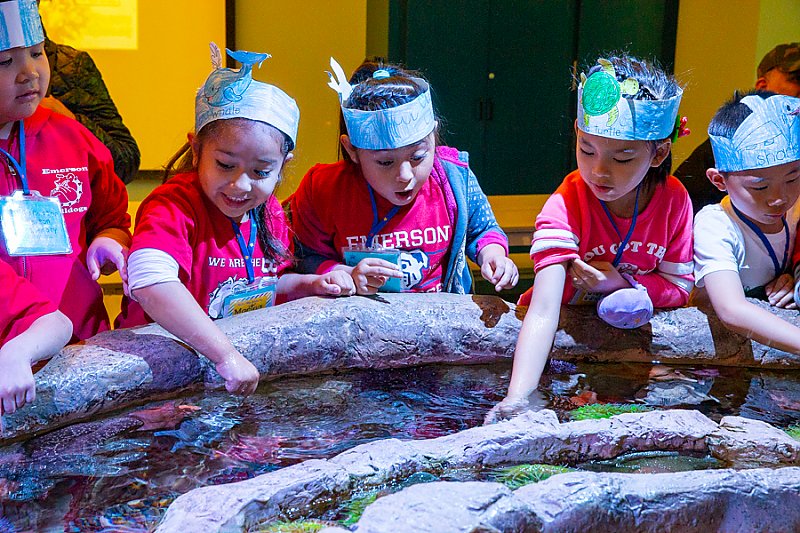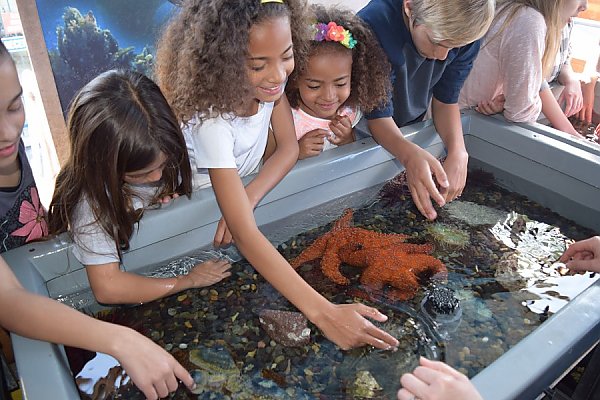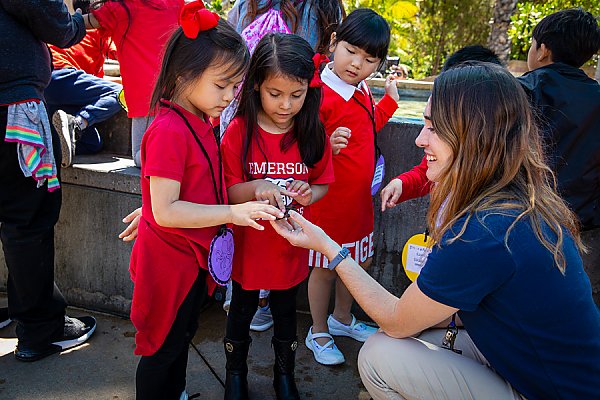Sensational Sharks
Grades 3-8
Discover all that is sensational about sharks!
Learners will explore these fascinating animals, learning what sets sharks, a type of fish, apart from other fish in the ocean. Using live view from the aquarium shark webcams and artifact exploration, students will take a deep dive into the world of sharks, investigating their unique adaptations, including body structure, senses, and shark teeth.
-
Supports Next Generation Science Standards:
- Performance Expectations
- 3-LS4-3. Construct an argument with evidence that in a particular habitat some organisms can survive well, some survive less well, and some cannot survive at all
- 4-LS1-1. Construct an argument that plants and animals have internal and external structures that function to support survival, growth, behavior, and reproduction.
- 5-ESS3-1. Obtain and combine information about ways individual communities use science ideas to protect the Earth’s resources and environment
- MS-LS2-4. Construct an argument supported by empirical evidence that changes to physical or biological components of an ecosystem affect populations
- Science and Engineering Practices
- Asking Questions
- Engaging in Argument from Evidence
- Constructing explanations
- Disciplinary Core Ideas
- LS4.C: Adaptation
- ESS3.C: Human Impacts on Earth Systems





